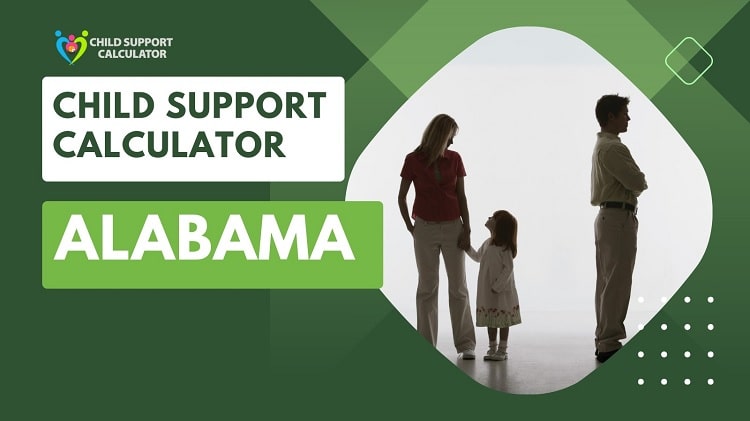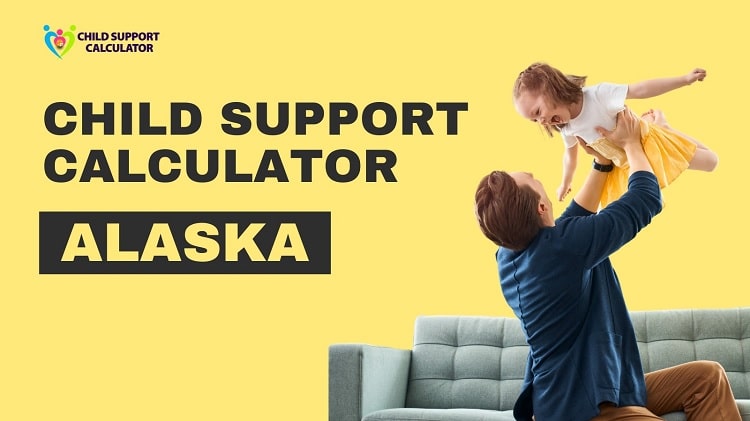Alimony In West Virginia
In West Virginia, the alimony after or during the divorce proceedings is usually determined by the family court, and this support is known as spousal support. This spousal support has to be paid to the spouse.
The divorce proceedings are very complicated, and it is very hard to determine the alimony support in the WV. This support needs so many factors to look into before any type of legal judgment.

According to West Virginia Code section 48-8-101, couples in West Virginia may claim alimony in any divorce or judicial separation. The court may impose any party is responsible for spousal support. Any important material, particularly marital fault, may be considered in calculating the level and length of alimony. This encompasses elements such as needs, capabilities, income, and others.
To get spousal assistance, spouses must live separately, according to West Virginia law. The judge also can impose spousal support if the spouses negotiate a prenuptial agreement.
Whereas the court takes into account a variety of considerations when assessing spousal support, this may examine extra components when they are crucial to accomplish a fair result.
The judge can revise a rehabilitative spousal support judgment on whether either spouse encounters a substantial change that will impact the circumstances upon which the judge decided its original judgment, as per West Virginia Code section 48-8-105. A loss of jobs or serious medical problems, for instance, would be a major change.
The judges in West Virginia consider the spouses’ marital misbehavior while determining alimony. A partner who is adulterous has committed a criminal act while wedded or has ditched or abandoned his or her partner for six months is not entitled to alimony. There has to be a change in the relationship for a West Virginia court to revise or cancel a current support award.
Support payments may be deducted from federal taxes by the paying party. Such payments must subsequently be claimed as income by the recipient.
A common myth is that if a couple gets divorced, their monetary commitments to each other end.If either spouse has financial difficulties during or after the divorce, the judge can order spousal maintenance, which is a monthly payment made by one spouse to the other.
Spousal support can be determined by a marriage contract, a separation settlement agreement, or a jury’s order. In this essay, you will learn about alimony in West Virginia.
Types of Spousal Support in WV
Alimony in West Virginia is divided into four categories:
Temporary (spousal support pendente lite)
Temporary support, also known as spousal support pendente lite, is available only while the divorce is in progress. Temporary assistance is intended to help a dependant spouse meet financial commitments while transitioning to a single income throughout the divorce process. Temporary support orders expire once the divorce is finalized by the court.
Rehabilitative Support
Rehabilitative support is the most common type of spousal support in West Virginia. Both couples are encouraged to look for jobs in order to become and remain financially self-sufficient. Judges are aware, however, that many couples organize their marriages such that one spouse can stay at home and raise a family while the other pursues a job.
Many spouses lose crucial education or professional skills during their time away from the workforce, making it difficult to obtain work following a divorce. Rehabilitative support is usually granted for a set amount of time to allow the recipient to find work.
Permanent Support
When one spouse is unable to become financially independent owing to circumstances beyond their control, permanent spousal support is provided. If a husband is 65 years old and unable to work due to a medical condition after 25 years of marriage, and his wife is a healthy, successful doctor, the court is likely to award the husband permanent spousal maintenance to ensure his financial stability after the divorce.
Spousal support in gross
Spousal support in gross is a defined amount of money paid in one lump payment or in installments by the paying spouse. For example, the court may award $80,000 in spousal support, which the paying spouse must pay in multiple instalments or monthly for a set amount of time.
Paying Spousal Support
A supportive spouse may be ordered to pay in installments, lump payments, or both by the court. Spousal support is frequently provided from a spouse’s income, but if that revenue is inadequate to satisfy the maintenance award, the judge may compel a spouse to surrender the title to separate property. The judge would never grant more spousal support than the earning spouse can sustain.
Qualifying for WV Divorce Laws Alimony
The pair must show that they have been living separately and apart before a judge can evaluate spousal assistance. Couples who live together, irrespective of where they are in the divorce proceedings, really aren’t eligible for spousal support.
After a couple has divorced, any spouse can seek help, and the court will examine the following 20 factors when deciding the nature, duration, and quantity of the ultimate award:
- The duration of the marriage.
- The length of time that the couples lived together as a married pair during their marriages
- Each spouse’s current employment income and additional earnings.
- Each spouse’s earning potential is determined by their educational background, training, job skills, work experience, length of unemployment, and child-custodial responsibilities.
- During the divorce, the property is divided.
- Each spouse’s age and mental, bodily, and emotional health.
- Each spouse’s educational qualifications.
- Whether either partner delayed economic, educational, or employment possibilities while married.
- The standard of living of the couple.
- The possibility is that the spouse seeking spousal support will be able to significantly boost their income-earning abilities in a reasonable amount of time by obtaining additional education or work training.
- Any monetary or non-monetary contribution made by one spouse to the other spouse’s education, training, vocational skills, profession, or earning abilities
- The cost of obtaining the education and training necessary for the supported spouse to achieve financial independence.
- The cost of little children’s education.
- The costs of each spouse’s and the couple’s children’s health care.
- Any tax implications for either spouse.
- The extent to which being a custodial parent makes working difficult for a supported spouse
- Each spouse’s financial requirements.
- Each spouse’s legal obligation is to assist any other individual.
- The costs and care associated with a physical or mental disability in a minor or adult child.
- Any other criteria that the court deems essential in determining a reasonable spousal support award
Aside from the arguments listed earlier, the law permits judges to consider and evaluate each partner’s wrongdoing or malfeasance during the relationship as a consideration in the separation. Even though the judge can examine marital faults like adultery, the judge must analyze all of the facts before finalizing a determination.
Even though courts have extensive power in deciding spousal support, spouses who want to keep control of the ultimate decision can negotiate and present a signed legal settlement to the court for approval.
Modification or Termination of Spousal Support
Unless the decree indicates otherwise, either spouse can seek the court to revise or terminate spousal support if their circumstances change significantly after the initial order. The loss or gain in a spouse’s income is frequently the result of a change in circumstances.
Support and remarriage
Permanent spousal assistance ends when a recipient spouse remarries. Rehabilitative assistance does not stop if the supported spouse remarries within the first four years of the rehabilitative phase, and spousal support does not end in general.
Death and assistance
Unless your agreement states differently, permanent spousal support terminates when either spouse dies. Rehabilitative support ends only when the recipient or the paying spouse dies and the court deems that the deceased spouse’s estate is unable to continue paying. In general, spousal support does not end with the death of either spouse.
Spousal Support and Taxes
Alimony in West Virginia is neither tax-deductible for the paying spouse nor deemed income for the recipient unless your divorce was finalized on or before January 1, 2019. Supported spouses must pay taxes on payments made before January 1, 2019, but paying spouses can deduct them.
If you divorced before January 1, 2019, but then changed your mind, you may be subject to the new Tax Cuts and Jobs Act, which went into force on January 1, 2019. If you’re not sure how spousal support affects your taxes, talk to a local family law professional.
Faqs
Is there alimony in WV?
Family Courts in West Virginia have the authority to determine and grant alimony, commonly known as spousal support. A court can require either spouse to pay. West Virginia alimony rules can be complicated to understand because there are so many variables to consider.
What is alimony in WV?
In West Virginia, spousal support (also known as alimony) can be established through a court order, an antenuptial agreement, or a separation agreement. According to the court’s regulations, spousal support might be paid in one lump sum or in monthly installments.
How much is alimony in WV?
The Supreme Court of India has established a benchmark value of 25% of the husband’s net monthly earnings as the amount that should be granted to the wife if alimony is paid monthly. Although there is no defined sum for a one-time settlement, it normally varies from 1/5th to 1/3rd of the husband’s net worth.
How is alimony determined in WV?
The court does not examine the genders of the spouses when deciding whether to grant alimony, but it does consider 20 statutory elements, including The duration of the relationship. The parties’ ages and health. The level of education and economic potential of each party.
How long does a man pay alimony in WV?
Alimony is usually computed depending on the length of the marriage; for example, for every three years of marriage, one year of alimony is paid (although this is not always the case in every state or with every court).
Does a man have to pay alimony in WV?
The husband is not obligated to pay alimony if the wife remarries, although he is still accountable for any children born from their union. He can also refuse to pay alimony if it has been decreed because his wife works.
Is custodial status considered when determining alimony in the state of West Virginia?
When assessing alimony payments in West Virginia, the judge takes custody status into account. This means that having custody of the children has an impact on alimony calculations, and custodial spouses may get higher alimony payments.
Is the standard of living considered in West Virginia alimony?
The standard of living is taken into account while calculating alimony payments in West Virginia. This means that a judge will consider the alimony-receiving spouse’s lifestyle throughout the marriage when determining an appropriate alimony payment amount.
Is marital fault considered in West Virginia alimony?
When assessing alimony payments in West Virginia, marital fault is taken into account. This means that “at-fault” divorces, such as those caused by adultery, abuse, or other factors, may result in the at-fault party paying higher “punitive” alimony.
Can a woman get alimony if she files for divorce?
Women can also seek assistance from the state commission for women. After a divorce, every married woman is entitled to alimony and maintenance from her husband.
Why does the wife get the house in a divorce?
Your payment arrangement will decide whether the individual who remains in the residence should acquire the other’s share, whether your house will be sold and the profits earned a split, or whether the person who has primary custody of the children should stay until the children leave home during a divorce or dissolution.
Who suffers the most in a divorce?
Both ex-spouses lose money, although men often lose 10% to 40% more than women because of alimony and child support obligations, the necessity for a separate place to reside, an extra set of home furniture, and other expenses.
Can my ex-wife claim half my new house?
Even after a divorce has been granted, no one is required to sell, and there are no fixed laws stating that all assets will be distributed evenly. In a divorce, no single partner has the right to 50% of all assets, including the family house.







